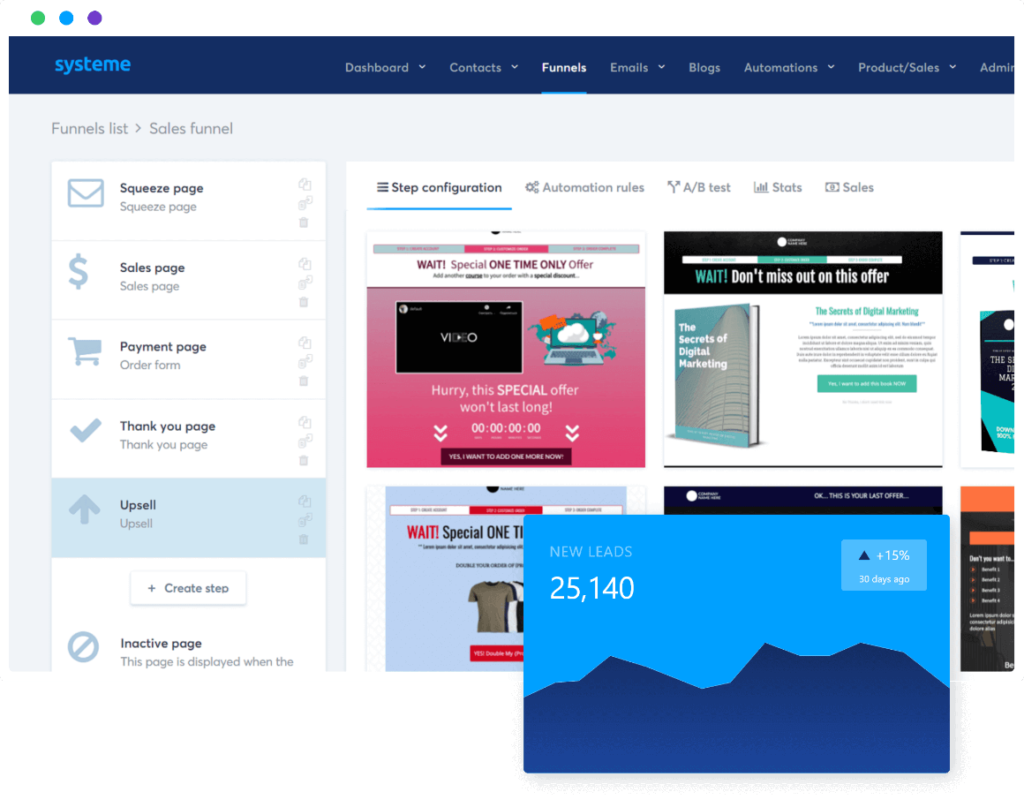In today’s fast-paced digital age, businesses must embrace the power of digital marketing to unlock success in the online realm. With a well-crafted digital marketing strategy, you can reach a broader audience, engage with customers on a personal level, and ultimately boost your bottom line.

Key Takeaways:
- Digital marketing is essential for businesses in the fast-paced digital age.
- A well-crafted digital marketing strategy can help you reach a broader audience.
- Engaging with customers on a personal level is crucial for success in the online realm.
- Implementing effective digital marketing strategies can boost your bottom line.
- By staying ahead of the digital marketing curve, you can unlock success online.
Enhancing Online Visibility with Search Engine Optimization (SEO)
When it comes to digital marketing, search engine optimization (SEO) is a fundamental strategy that can significantly enhance your online visibility. By optimizing your website and content, you can improve your search engine rankings, drive organic traffic, and attract potential customers. SEO revolves around various elements, including website optimization, keyword optimization, and building quality backlinks.
Website optimization involves optimizing your website structure, navigation, and performance to ensure it is search engine-friendly. This includes improving site speed, mobile responsiveness, and user experience. By providing a seamless website experience, you increase the chances of ranking higher in search engine results pages (SERPs) and capturing organic traffic.
Another crucial aspect of SEO is keyword optimization. By researching and incorporating relevant keywords into your website content, you can signal to search engines that your website is relevant to specific search queries. This increases the likelihood of appearing in relevant search results, driving targeted organic traffic to your site.
“SEO is like a bridge connecting your website to potential customers. By creating a strong foundation and optimizing every element, you provide search engines with clear signals and increase the chances of attracting organic traffic.”
Building quality backlinks is also an integral part of SEO. Backlinks are links from other websites that point back to your site. When reputable websites link to your content, search engines interpret it as a vote of confidence and authority, which can boost your search engine rankings. It’s crucial to focus on acquiring backlinks from authoritative websites within your industry to enhance your online credibility and visibility.
Table: SEO Checklist
| SEO Element | Action |
|---|---|
| Website Optimization | Optimize site speed, improve mobile responsiveness, enhance user experience |
| Keyword Optimization | Conduct keyword research, incorporate relevant keywords into website content |
| Backlink Building | Acquire quality backlinks from authoritative websites within your industry |
By implementing a comprehensive SEO strategy, you can elevate your website’s visibility, increase organic traffic, and improve your search engine rankings. SEO is an ongoing process that requires continuous monitoring, optimization, and adaptation to stay ahead of the ever-evolving search engine algorithms. With a strong SEO foundation, your website can become a powerful asset in your digital marketing arsenal.

Captivating and Informative Content Marketing
Content marketing is a powerful strategy that allows businesses to engage their target audience, increase brand awareness, and drive customer engagement. By creating valuable and compelling content, companies can establish themselves as industry leaders and build a loyal customer base.
One of the primary goals of content marketing is to provide valuable information to your audience. Whether through blog posts, articles, or social media content, delivering informative and educational content not only helps your customers but also positions your brand as a trusted source of knowledge in your industry.
A key aspect of successful content marketing is creating content that is engaging and captures the attention of your audience. By using storytelling techniques, incorporating visuals, and adding interactive elements, you can make your content more captivating and memorable. This will encourage your audience to spend more time on your website or social media platforms, increasing their likelihood of converting into customers.

The Power of Valuable Content
Valuable content is the cornerstone of content marketing. It focuses on addressing the needs and challenges of your target audience, providing them with solutions and insights. By offering valuable content, you not only establish yourself as an expert but also build trust and loyalty with your audience.
One effective way to create valuable content is by conducting thorough research and delivering fresh and unique perspectives. This can be done through case studies, expert interviews, or in-depth analysis of industry trends. By offering valuable and exclusive information, you become a go-to resource for your audience, strengthening your brand’s reputation and authority.
Boosting Brand Awareness through Content Distribution
Creating valuable content is only part of the equation. To maximize its impact, you need to distribute it effectively. Utilizing various channels such as social media, email marketing, and guest posting allows you to reach a wider audience and increase brand visibility.
Social media platforms provide an excellent opportunity to distribute your content to a large audience quickly. By actively promoting and sharing your content on platforms like Facebook, Twitter, and LinkedIn, you can increase its reach and encourage social sharing, which can lead to greater exposure and more potential customers.
In addition to social media, email marketing is a powerful tool for content distribution. By sending valuable content directly to your subscribers’ inboxes, you have the opportunity to nurture and engage with your audience on a more personal level. This can lead to increased website traffic and conversions.
Incorporating Content Marketing into Your Strategy
To effectively incorporate content marketing into your overall digital marketing strategy, it is crucial to develop a clear plan and set measurable goals. Identify your target audience, determine the types of content that will resonate with them, and establish a consistent schedule for content creation and distribution.
Regularly analyzing the performance of your content is also essential. Monitor key metrics such as website traffic, engagement, and conversions to gain insights into what types of content are resonating with your audience and adjust your strategy accordingly.
| Benefits of Content Marketing | Examples |
|---|---|
| Increased brand awareness | Creating shareable infographics that highlight industry statistics |
| Improved customer engagement | Running interactive quizzes or polls on social media platforms |
| Establishing thought leadership | Writing in-depth whitepapers or research reports |
| Higher search engine rankings | Optimizing blog posts with relevant keywords and meta tags |
Amplifying Brand Reach with Social Media Marketing
Social media marketing has become an indispensable tool for businesses looking to enhance their brand visibility, engage with their audience, and drive targeted ad campaigns. With the widespread use of social media platforms such as Facebook, Instagram, Twitter, and LinkedIn, companies have the opportunity to connect with their target audience more personally and interactively.
By sharing engaging content that resonates with their followers, businesses can boost brand visibility and foster customer loyalty. Social media provides a platform for companies to showcase their products or services, share updates and announcements, and interact directly with their audience through comments, likes, and shares. This level of engagement not only strengthens the bond between the brand and its customers but also increases the likelihood of word-of-mouth recommendations and referrals.
In addition to organic reach, social media platforms offer robust advertising capabilities that allow businesses to run targeted ad campaigns. With advanced targeting options, companies can specify demographics, interests, and behaviors to reach their ideal audience. By leveraging the power of influencer partnerships, businesses can tap into the social influence of popular individuals to expand their reach and gain credibility.
| Social Media Marketing Benefits | Social Media Platforms | Influencer Partnerships |
|---|---|---|
| Increased brand visibility | Brand endorsements | |
| Audience engagement | Sponsored content | |
| Targeted ad campaigns | Product reviews | |
| Expanded reach | Guest appearances |
It is crucial for businesses to have a strong presence on social media platforms to amplify their brand reach, foster audience engagement, and create meaningful connections with their customers. By leveraging the power of social media marketing, businesses can establish themselves as industry leaders, drive website traffic, and ultimately boost their bottom line.

Nurturing Customer Relationships through Email Marketing

Email marketing is not just about sending promotional messages to your subscribers. It is a powerful tool for nurturing customer relationships and building trust with your audience. By utilizing personalized content, targeted email campaigns, and segmentation, you can create a tailored experience that engages and converts customers.
Personalized Content
One of the key strategies in effective email marketing is personalization. Tailoring your content to the individual preferences and needs of your subscribers allows you to connect with them on a deeper level. By collecting data such as purchase history, browsing behavior, and demographic information, you can create personalized emails that resonate with each recipient.
For example, if a customer recently purchased a product from your online store, you can send them a follow-up email expressing gratitude and offering recommendations for related products. By showing that you understand their preferences and care about their satisfaction, you can foster a stronger relationship and increase the likelihood of repeat purchases.
Email Campaigns and Segmentation
Segmentation is another crucial aspect of email marketing. By dividing your subscriber list into specific groups based on demographics, preferences, or behavior, you can send targeted campaigns that are more relevant to each segment. This allows you to deliver highly personalized content to specific groups, increasing engagement and conversions.
For example, if you have a special promotion for a specific product category, you can send an email campaign to subscribers who have shown interest in that category. By tailoring your message to their specific needs and preferences, you can increase the chances of conversion and drive sales.
| Email Segments | Criteria |
|---|---|
| New Subscribers | Subscribed within the last 30 days |
| High-Value Customers | Spent over $500 in the last 6 months |
| Abandoned Cart | Added items to the cart but did not complete the purchase |
Driving Informed Decision-Making with Data Analytics
In the fast-paced digital landscape, data analytics has become a powerful tool for businesses seeking to make informed decisions. By harnessing the power of data, companies can gain valuable insights into customer behavior, website traffic, social media engagement, and return on investment. These insights not only paint a clear picture of how customers interact with online platforms but also provide guidance for refining marketing strategies and maximizing the impact of digital campaigns.
When it comes to understanding customer behavior, data analytics offers a wealth of information. From tracking website traffic to analyzing click-through rates and conversion rates, businesses can identify trends and patterns that shed light on what drives customer engagement and leads to conversions. By studying these insights, companies can make data-driven decisions that optimize campaign performance and enhance the overall customer experience.
Social media platforms also present a valuable opportunity for data analytics. By examining social media engagement metrics such as likes, shares, comments, and click-through rates, businesses can gauge the effectiveness of their social media marketing efforts. This information enables companies to identify content that resonates with their audience, refine their messaging, and allocate resources more effectively.
Table: Benefits of Data Analytics in Digital Marketing
| Benefits | Explanation |
|---|---|
| Insights into customer behavior | Data analytics provides valuable information about how customers interact with online platforms, enabling businesses to optimize campaigns and improve the customer experience. |
| Optimization of marketing strategies | By analyzing data, businesses can identify trends and patterns that inform more effective marketing strategies, resulting in increased engagement and conversions. |
| Refinement of social media marketing efforts | Social media engagement metrics offer insights into the effectiveness of social media campaigns, helping businesses refine their messaging and improve audience targeting. |
| Maximization of return on investment | Data analytics allows businesses to track the performance of digital campaigns, optimize resources, and allocate budgets more effectively, resulting in a higher return on investment. |
In summary, data analytics plays a pivotal role in driving informed decision-making in the realm of digital marketing. By utilizing the insights provided by data analysis, businesses can gain a deeper understanding of customer behavior, optimize marketing strategies, refine social media campaigns, and maximize their return on investment. Embracing data analytics empowers businesses to stay ahead of the curve and unlock the full potential of their digital marketing efforts.
Capitalizing on the Mobile Revolution with Mobile Marketing
In today’s digital age, mobile devices are an integral part of everyday life. People rely on their smartphones and tablets for everything from communication to entertainment and shopping. As a business owner, it is crucial to recognize the power of mobile marketing and capitalize on the mobile revolution to reach and engage your target audience.
Mobile marketing refers to the use of mobile devices, such as smartphones and tablets, to promote your products or services. By creating mobile-friendly content, optimizing your website for mobile devices, and leveraging location-based targeting, you can effectively connect with your audience in a personalized and convenient way.
One of the key advantages of mobile marketing is its ability to reach consumers on the go. With the increasing reliance on mobile devices, people have constant access to the internet and are always connected. This provides businesses with a unique opportunity to engage with customers in real-time, deliver relevant content, and provide seamless user experiences.
Table: Mobile Marketing Statistics
| Statistic | Percentage |
|---|---|
| Percentage of internet users who access the internet via mobile devices | 53% |
| Percentage of mobile users who make purchases via mobile devices | 78% |
| Percentage of consumers who prefer mobile-friendly websites | 84% |
| Percentage of mobile users who take action after receiving a relevant ad | 70% |
Source: Mobile Marketer
Location-based targeting is another powerful aspect of mobile marketing. By leveraging location data, businesses can deliver personalized offers and promotions based on a user’s physical location. This allows for hyper-targeted marketing campaigns that are more likely to resonate with consumers and drive conversions.
As the mobile revolution continues to evolve, it is crucial for businesses to adapt their digital marketing strategies to include mobile marketing. By optimizing content for mobile devices, delivering personalized experiences, and leveraging location-based targeting, you can engage your audience where they spend the most time and drive meaningful results for your business.
Harnessing Social Influence with Influencer Marketing
When it comes to building brand awareness and connecting with your target audience, influencer marketing has become a powerful strategy in the digital marketing landscape. By leveraging the social influence of individuals who have a loyal following in their respective niches, businesses can tap into new markets, expand their online presence, and establish credibility through trusted endorsements.
One of the key benefits of influencer marketing is its ability to create authentic connections with consumers. Unlike traditional advertising methods, influencer marketing allows brands to reach their target audience in a more organic and relatable way. By partnering with influencers who align with your brand values and target demographic, you can leverage their influence to engage and resonate with your audience on a deeper level.
“Influencer marketing allows brands to tap into the social influence of individuals who have a loyal following in their respective niches.”
A successful influencer marketing campaign often involves sponsored content and product reviews that showcase your brand or products in a genuine and compelling manner. By collaborating with influencers who have a genuine interest in your industry, you can ensure that their content resonates with their audience and effectively promotes your brand. This approach not only increases brand awareness but also generates valuable user-generated content that can be shared across various channels.
It’s important to note that influencer marketing is not just limited to social media platforms. Influencers can also play a significant role in other digital marketing channels, such as blogs, podcasts, and YouTube channels. By diversifying your influencer marketing efforts across multiple platforms, you can reach a wider audience and drive more traffic to your website.
| Benefits of Influencer Marketing | Examples of Influencer Marketing |
|---|---|
|
|
Driving Brand Awareness and Trust
One of the primary goals of influencer marketing is to increase brand awareness. By collaborating with influencers who have a strong online presence and a dedicated following, businesses can expose their brand to a wider audience. The endorsement and promotion of a trusted influencer can lead to increased brand recognition and positive associations, driving potential customers to engage with and consider your products or services.
In addition to brand awareness, influencer marketing also helps to establish trust and credibility. Influencers build a relationship of trust with their followers, who often perceive them as experts or trusted sources of information within their niche. When an influencer recommends or endorses a brand, their audience is more likely to trust and value their opinion, leading to increased credibility for the brand.
In conclusion, influencer marketing is a powerful strategy for harnessing social influence to build brand awareness, establish credibility, and connect with target audiences. By collaborating with influencers who align with your brand values and target demographic, you can tap into their loyal following and leverage their influence to drive brand growth and engage with consumers on a meaningful level.
Engaging Visual Experiences with Video Marketing
In today’s digital landscape, video marketing has emerged as a powerful tool for businesses to effectively engage their audience, enhance brand visibility, and drive user engagement. With the rise of video sharing platforms and the increasing consumption of visual content, incorporating video into your digital marketing strategy is crucial to captivate and connect with your target audience.
Video marketing provides a unique opportunity to create compelling and visually captivating content that evokes emotions, tells stories, and inspires action. Whether it’s showcasing your products or services, delivering informative tutorials, or sharing entertaining stories, videos have the ability to leave a lasting impression on your audience.
By leveraging video sharing platforms such as YouTube, Facebook, Instagram, and TikTok, businesses can reach a wider audience and promote their brand in a highly engaging and shareable format. The visual nature of videos allows for better storytelling and the ability to convey complex messages in a concise and memorable way. With the right video marketing strategy, you can effectively convey your brand’s message, establish a strong emotional connection with your audience, and ultimately drive conversions.
Enhancing User Engagement
One of the key benefits of video marketing is its ability to enhance user engagement. Videos have a higher potential to capture your audience’s attention compared to other forms of content. By incorporating visually appealing visuals, compelling storytelling, and captivating music or sound effects, you can create an immersive experience that keeps viewers engaged from start to finish.
Moreover, videos have a higher likelihood of being shared and going viral compared to text-based content. When your audience finds a video interesting or valuable, they are more likely to share it with their friends, family, and social media followers. This organic sharing can significantly increase your brand’s visibility and reach, resulting in a wider audience and potentially more customers.
Boosting Brand Visibility
Video marketing is an effective way to boost your brand’s visibility in the online realm. Incorporating your brand elements, such as your logo, colors, and tagline, into your videos helps create brand recognition and reinforces your brand identity. Consistently presenting your brand in your videos helps to establish a cohesive and memorable brand image in the minds of your audience.
Additionally, by optimizing your videos with relevant keywords and tags, you can improve your video’s visibility in search engine results. This increases the chances of your videos being discovered by users who are searching for related topics or content. The higher visibility in search engines, along with the potential for viral sharing, can significantly expand your brand’s reach and visibility.
Conclusion
In an increasingly competitive digital landscape, it is crucial to implement comprehensive digital marketing strategies to achieve online success. By incorporating a well-rounded approach that includes search engine optimization, content marketing, social media marketing, email marketing, data analytics, mobile marketing, influencer marketing, and video marketing, your business can unlock the full potential of the online realm.
With a strong digital marketing strategy in place, you can elevate your brand, reach your target audience, and stand out in the digital space. By utilizing search engine optimization techniques, you can improve your website’s visibility and attract organic traffic. Engaging your audience with valuable content through content marketing will establish you as an industry leader and increase brand awareness.
Leveraging social media marketing and influencer partnerships will amplify your brand reach and foster customer loyalty. Nurturing customer relationships through email marketing keeps you connected to your audience and drives conversions. Utilizing data analytics allows you to make informed decisions, optimize your campaigns, and maximize your return on investment.
Incorporating mobile marketing ensures that you can capitalize on the mobile revolution and provide personalized experiences to your audience. Lastly, video marketing enables you to engage your audience visually, evoke emotions, and enhance your brand visibility.
By implementing these comprehensive digital marketing strategies, you can unlock the full potential of the online realm and achieve online success.
FAQ
Why is digital marketing important for businesses?
Digital marketing allows businesses to reach a broader audience, engage with customers on a personal level, and boost their bottom line in today’s fast-paced digital age.
What is search engine optimization (SEO) and why is it important?
SEO focuses on improving a website’s visibility in search engine results pages (SERPs) by optimizing content, keywords, and backlinks. It helps businesses improve their website’s ranking, drive organic traffic, and attract potential customers.
How does content marketing benefit businesses?
Content marketing allows businesses to establish themselves as industry leaders by creating valuable, engaging, and relevant content. It captures attention, drives customer engagement, encourages social sharing, and increases brand awareness.
How can social media marketing help businesses?
Social media marketing amplifies brand reach and helps businesses connect with their audience more personally and interactively. Engaging content, targeted ad campaigns, and influencer partnerships increase brand visibility, foster customer loyalty, and drive website traffic.
Is email marketing still relevant?
Yes, email marketing remains a powerful tool for nurturing customer relationships and driving conversions. By building an email list and crafting personalized, valuable content, businesses can establish a direct line of communication with their customers.
How does data analytics contribute to digital marketing strategies?
Data analytics provides valuable insights into customer behavior, preferences, and purchasing patterns. By analyzing website traffic, social media engagement, and conversion rates, businesses can make informed decisions, optimize campaigns, and maximize return on investment.
What is mobile marketing and why is it important?
Mobile marketing optimizes websites for mobile devices, creates mobile-friendly content, and leverages location-based targeting to reach the growing mobile audience. It allows businesses to engage with customers on the go, provide seamless user experiences, and deliver personalized offers.
How can influencer marketing benefit businesses?
Influencer marketing taps into the social influence of influencers to expand online presence. By partnering with respected individuals who have a loyal following, businesses can reach a wider audience, build brand awareness, and establish trust through endorsements.
Why is video marketing effective?
Video marketing effectively engages audiences, evokes emotions, entertains, and inspires action. Sharing compelling videos on platforms like YouTube, social media, and websites significantly enhances brand visibility and user engagement.
Why should businesses adopt comprehensive digital marketing strategies?
In an increasingly competitive digital landscape, comprehensive digital marketing strategies are essential for businesses to stand out and succeed online. By utilizing various tactics like SEO, content marketing, social media marketing, email marketing, and more, businesses can achieve online success and reach their target audience.
Source Links
- https://theincmagazine.com/digital-marketing-strategies-unlocking-success-in-the-online-realm/
- https://www.linkedin.com/pulse/unlocking-secrets-effective-online-marketing-strategies-xgthf
- https://www.linkedin.com/pulse/unlocking-success-digital-marketers-toolbox-guide-effective-habib-ako-8cpwe?trk=article-ssr-frontend-pulse_more-articles_related-content-card


